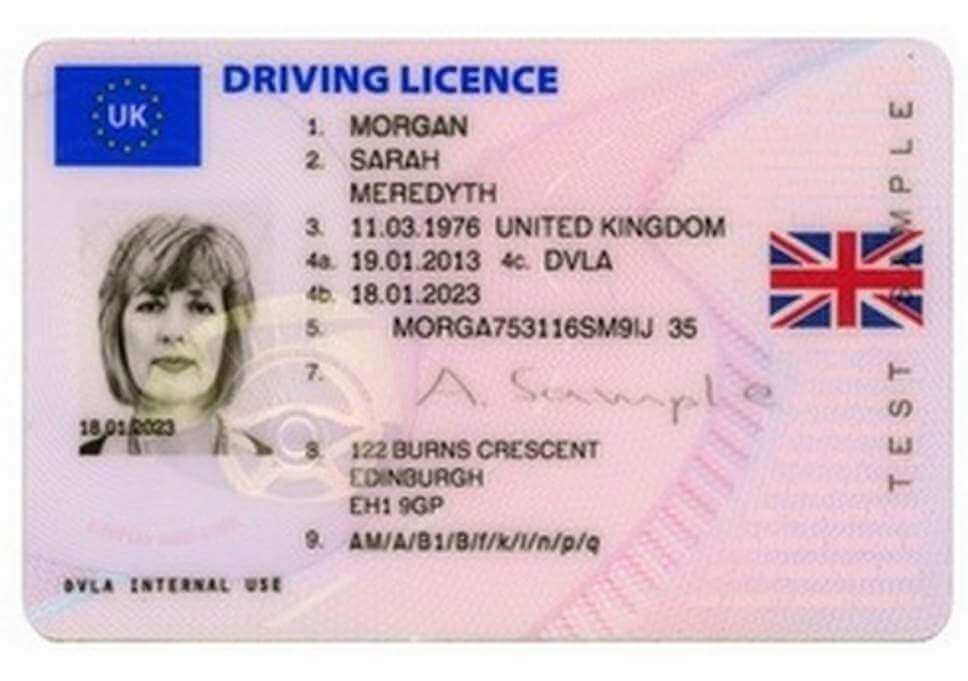Every year, thousands of people from all over the world move to London.
In fact, according to the World Population Review, London’s population could reach 9.8 million by 2025. The UK capital is a globally influential city and has perks in various categories.
London is a land of opportunities for people across the globe.
It is an exciting, vibrant, and diverse city with a strong economy. At the same time, we understand that moving to a new city can feel overwhelming. We aim to alleviate some of your worries by answering common questions about relocating to London, and providing expert insight on beginning a new life in London.
This guide is designed just for you because it has everything you need to know before moving to London. We will explore the cost of buying, the cost of moving and living in the bright City of London.
Firstly, Should You Move to London in 2023?
London is in the best possible way, a land of opportunities if you’re willing to put in effort. With a rich history, modern infrastructure, ample job opportunities, and good weather, London is a good place to move to.
Furthermore, if you’re an ambitious graduate looking for a new career, a big and economically strong city like London could have a lot to offer.
Overall, it comes down to individual circumstances. For example, your current job, the country you live in, your family situation, or your eagerness to experience new cultures.
Yes, the prospect of moving to a new city can be intimidating. But don’t let that stop you from following your dreams. You have to analyse your situation, and research thoroughly.
If you’re moving to London, then some of the things you need to research are services, opportunities, and the structure offered in London. Let’s start by…
Understanding London’s Urban Structure
London is divided into 9 zones that begin from the city’s historic centre.

These 9 zones are essentially the way the London Underground Map (or the Tube Station Map) is split, with the purpose of paying more as you travel farther on the system.
Zone 1 and Zone 2 are what we call “Central London.”
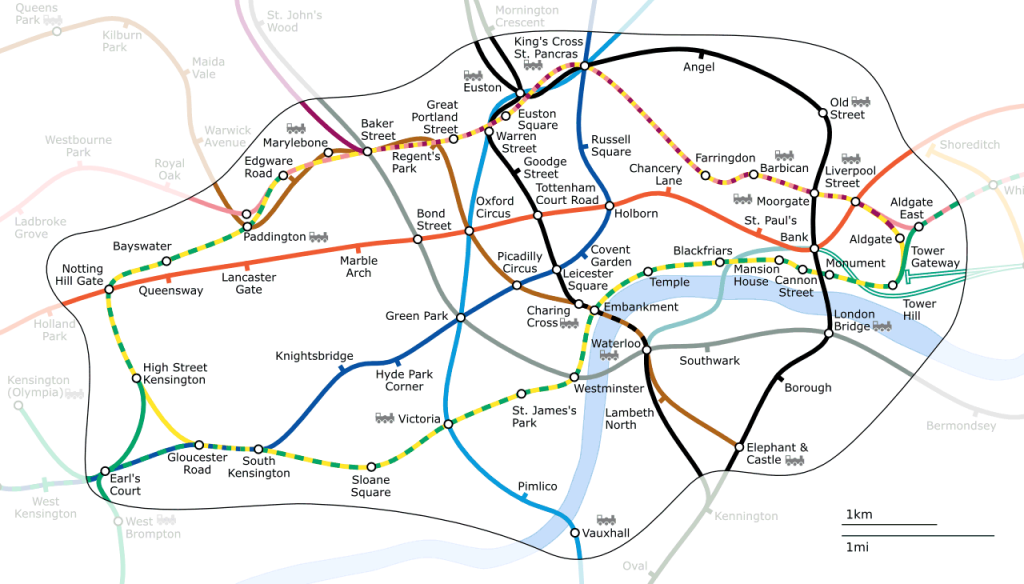
Living in Central London has its benefits, but of course, it is not ideal for everyone.
Rent in Central London is the highest in the city, and there is a high tourist population in this area.
In Central London, you can find things like Kensington Palace, Victoria and Albert Museum, Piccadilly Circus.
Every zone after Zone 1 is like adding layers to the “ring,” and the further you go into zones, the further you are from Central London. It’s like an Onion.
There is no such thing as the best place to live in London, as there are many areas and many exciting things to do as a Londoner. Unfortunately, the cost of buying a house in London is significantly high.
If you are moving to London for the first time, all these might seem overwhelming—but trust me, it’s not.
You just need to give yourself some time to get used to your new city.
Fortunately, the United Kingdom is a very friendly country and British people are generally warm with people from abroad.
Moving to England will be the best choice you’ve ever made. Here are some things to know before moving, that could make your journey easier…
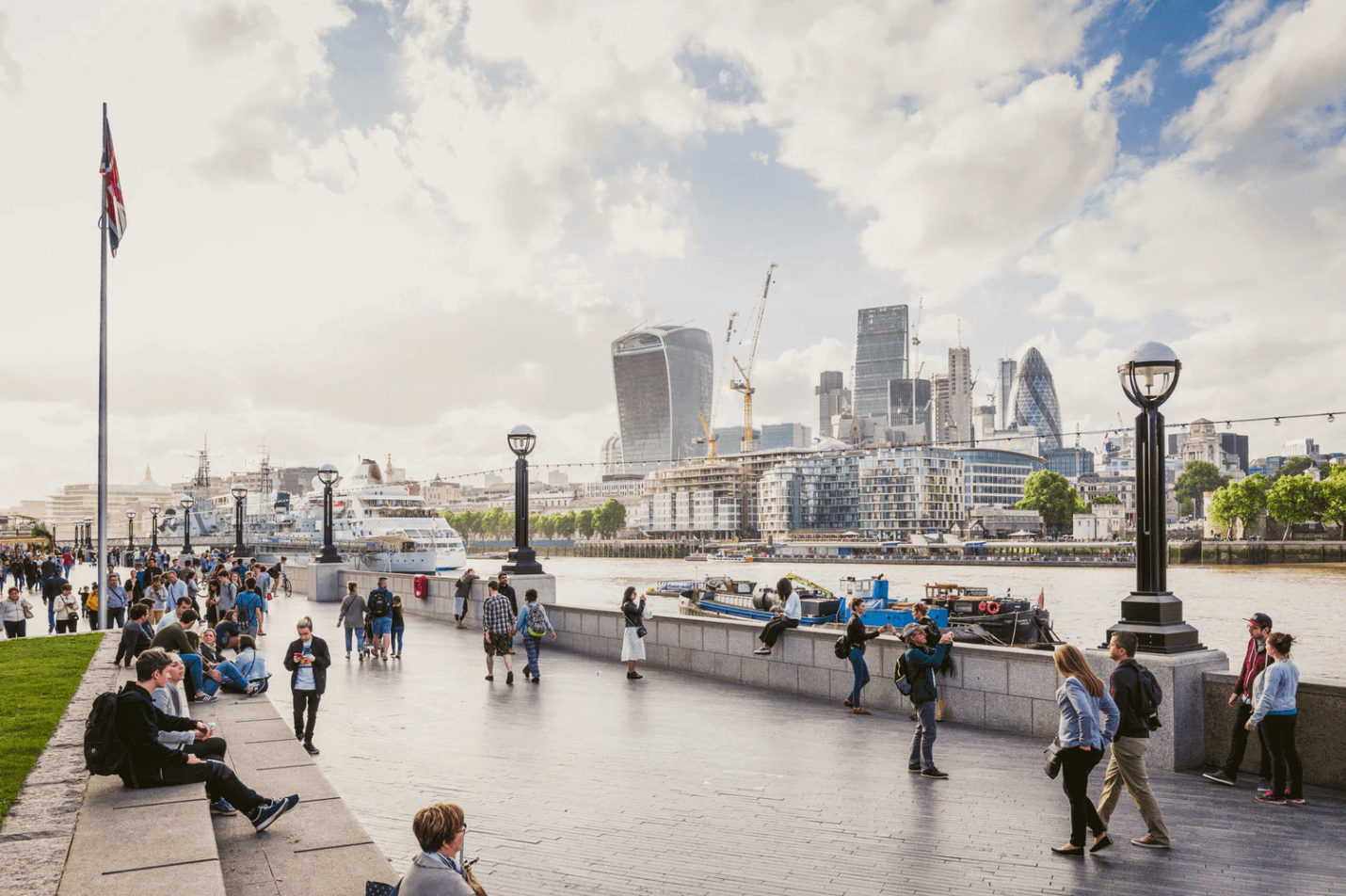
Tip #1: Moving to London as a Young Adult
Whether you have just graduated from University and are seeking employment, or have been part of the workforce for several years, London has a lot to offer.
The consulting agency Decode founded a global index, Youthful Cities, that ranks the top 55 cities to move to as a millennial.
London is ranked #2 on this global index, which takes into consideration: employment, culture, education, mobility, affordability, and more.
Moving to London from overseas is no easy feat, especially if you are doing it all by yourself.
But do not be intimidated; London has a lot to offer single, young adults!
Whether it is most important for you to be close to the Victoria Line, near a Tesco, or next to your university, choosing the right neighbourhood to live in will play a large part in your happiness in this big city.
For ambitious graduates and young adults who are excited to explore the city and meet new people, we recommend energetic and culturally diverse areas such as Camden, Hackney, Bermondsey, and Brixton among others.
For more information on London neighbourhoods, see our list of 24 Best Places to Live in London.

We know that it can be intimidating to step out of your comfort zone, but making new friends can be essential to your success in a new city.
Take a weekly class at your local gym. Become a regular at your neighbourhood café. Enroll in a language, photography, or cooking class.
These are ways to organically meet like-minded people. Pushing yourself out of your comfort zone is one of the cost of buying a house in London.
If you prefer to take the technological route, apps like Citysocializer and Meetup are great tools for making new friends who share your interests.
Making yourself available to form happy and healthy friendships will undoubtedly improve your quality of life, regardless of which city you live in.

Tip #2: Moving to London for Work
If you are relocating to London due to a promotion or job transfer, congratulations!
This is an exciting step toward a bright future.
London is a beautiful and historic city that is full of opportunities and provides a positive environment for people to excel in their careers.
Whether you are just transferring locations within the same company, or taking a job with an entirely new company, inquire about the possibility of a “settling-in service.”
Many corporations offer their employees this service as a kindness and to ease the transition. It will make your prospects of work in London more fruitful and less anxiety-inducing.
Before moving, ensure that your relocation package and contract with your company is clear.
Ask questions if you are feeling any confusion.
This will be a busy time for you, and you do not want the added stress of not knowing 100% what is going on with your job.
Furthermore, be prepared for a change in the cost of living.
Your income will soon adjust to the difference, but it would not hurt to have a small sum of money saved before making the big move.
Tip #3: Moving to London Without a Job
The cost of living in London is considerably high.
In fact, London is the 3rd most expensive city in Western Europe. Be ready for an exuberant amount in terms of the cost of moving to London.
So, if you are moving to London without a job (unless you are one of the lucky ones) you will want to begin the job search as soon as possible.
Keeping in mind the cost of transportation and rental fees, we would also recommend having enough money in your bank account to live off for a few months while you are waiting for employment.
Fortunately, London is an enormous city with many job opportunities.
If you’re looking for a job, there are many easily accessible tools to assist you with the job search even before you get to London.
Here are some of the best ones:
1) Monster
Monster is one of the leading job hunting sites in the world.
You can use it to find companies that are hiring, and to connect with other job-seekers and employers.
All you have to do is enter a keyword based on your preferences and skills, and a location for your search:

Monster will return numerous job results based on your search query and preferred location.
Plain and simple.
2) Gumtree
Gumtree is a British online community and marketplace where you can post or find a job based on your skills and preferred location.
As you can see, there are many options you can choose from:

When you click on one of these categories, you can browse and apply for jobs posted on Gumtree.
It’s straightforward and easy to use.
3) Reed.co.uk
Reed is one of the UK’s most well-known job sites.
Their mission is to “help the world love Mondays”.
Reed is unique in that they are also a source of courses to enroll in that can strengthen your skills and set you apart from the competition.

4) Indeed
Indeed, is another excellent website for those searching for a job in London.
With as many as 38.4 million monthly visits in the UK alone, it is also the biggest job site on the internet.
Similar to Monster, Indeed has a very friendly search engine that allows you to browse several jobs based on your preferences and location or postcode.
Make sure to check it out.
5) Wellfound.com
This one is for those interested in a career in tech.
Angel.com is a leading website that lists jobs from more than 130,000 established and startup tech companies.

This is a great resource for young professionals who want to start a career in a London tech company, and for those looking to invest.
6) Jobsite
Jobsite is a British website where, like other job sites, you can browse and discover jobs that fit your particular set of skills.
Make your CV visible to hundreds of recruiters by creating an account and uploading your information. You can use it to find jobs around the city, in various credible companies.
7) Work in Startups
This is the one we are using here at STORED.
Work in Startups is ideal for young professionals who want to work in a London startup.
You can conduct a search based on your skills:

Different job categories:

Or, see all the job posts that are currently listed:
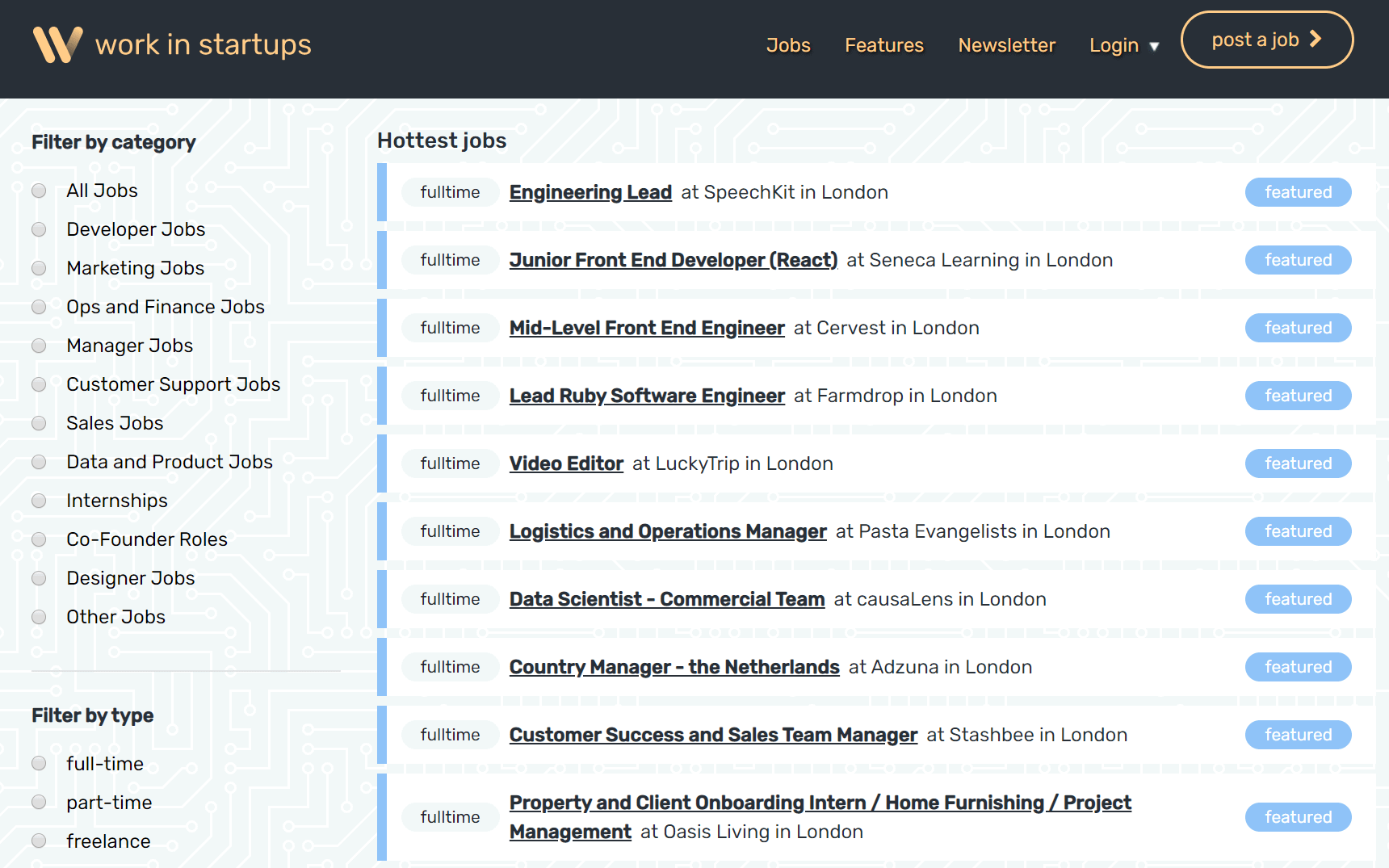
These are just a few of the job search sites available to you.
Here’s everything you need to do before applying for a job posting:
- Take a nice CV photo
- Create your summary of experience
- Set up a LinkedIn profile
- Do your research and shortlist the best options
Finally, start sending proposals.
For more information on finding a job in London, refer to these 9 Simple Steps to Find a Job in London.
Tip #4: Moving to London With Family
If you are moving to London with your family, you will have a little more research to do.
There are more things to consider, such as economic status, the age of your children, your job location, and your lifestyle.

According to Numbeo, excluding rent, a family of four can expect to pay £2,817 per month in day-to-day expenses. Keep this in mind when budgeting for your move.
We know that having other people depend on you makes things a little more stressful.
To help you out, here is a list of some of the first things you need to do:
- Find a safe neighbourhood that best suits your needs
- Secure a job for both you and your partner
- Open a bank account and obtain a debit and credit card
- Get a UK mobile phone plan or SIM card (Vodafone and T-Mobile are easy options)
We recommend that you download an app like Citymapper, or go on a couple of free walking tours to get familiar with the city. If your kids are older, they even have more adventurous ones like Jack the Ripper tours.
Isle of Dogs, Clapham, Chelsea, and Blackheath are all neighbourhoods that are great places to live in for families, but for a more comprehensive list check out 24 Best Places to Live in London in 2022.
You can open a new bank account in one of the major banks like Lloyds, HSBC or Barclays. You can also use an online bank like Monese to open a current bank account.
There is a lot to do at first when relocating to London, but remember to take some time for yourself.
Find interesting activities for you and your family; enjoy the many great things the city has to offer.
From Tip #1: Moving to London From Scotland

Despite the proximity and them both being part of the UK, there are many differences between living in Scotland and living in the UK capital, London.
Population
The large population gap is one of the most obvious differences.
The population of Scotland is 5.438 million.
London is bigger than the entire country of Scotland, with a population of 8.9 million.
The largest city in Scotland, Glasgow, has a population of 596,000.
So be prepared for everywhere in general to be more crowded.
Career Opportunities and Higher Wages
Since London is one of the world’s leading global cities, the job market is thriving.
There are more opportunities to further your career in London given that companies are usually bigger, with more global exposure.
In addition to more opportunities, you can also expect to receive a higher salary.
In general, salary ranges are higher in London than any other part of the UK.
Even if you relocate to London and take a job that is similar to your previous job, with a company similar in size, you can expect to take home significantly more money every month.
This can be especially true for business owners.
More people=more money.
Weather
You might often hear complaints about the dreary weather in London, but it is actually milder than the weather in Scotland.
Moreover, since London is farther south than Scotland, you will have more daylight hours in the winter.
Culture
London is far more metropolitan and diverse than the largest cities in Scotland.
According to the 2011 Census, Scotland is 96.02% white, and London is 59.79% white.
This diversity provides Londoners with a wide range of restaurants and stores.
Whether it be delicious Vietnamese cuisine or authentic South American dishes, you can always find what you are looking for.
Scotland’s largest cities, Glasgow and Edinburgh, are fun and entertaining cities, but the more metropolitan aspect of London also makes for an exceptional and eclectic nightlife.
Note: Since Scotland and England are both members of the UK, the relocation process is much simpler for Scots in terms of visa/legal requirements.
From Tip #2: Moving to London From the US

Moving from the United States to a European country is a big and exciting decision.
Americans often choose to relocate to England for several reasons, but a gigantic benefit is the shared language.
Not having a language barrier makes the transition less intimidating, and offers the best of both worlds for Americans wanting to live and work in Europe.
Despite the shared language, we have listed a few terms and phrases below that you will want to learn to communicate effectively in “the Big Smoke”.
New Words and Phrases
Some of these you might already know, but for Americans who have not travelled outside their country, this will be quite helpful.
In terms of food, French fries are called “chips” in England, what we call potato chips are called “crisps” and cookies are “biscuits”.
In England, pants are called “trousers,” and underwear are “pants”.
And instead of waiting in line, you are waiting in the “queue”.
Healthcare
The UK’s National Healthcare System (NHS) is drastically different from that in the United States.
The NHS is a universal healthcare system funded from general taxation, and is available to all citizens regardless of economic class and income.
As an American living in London, it will come as a shock to you that most medical services are free of charge.
In addition to a foreigner’s fee of £200 per year, there are fees for certain exams, dental services, and prescriptions, but you can still expect to pay significantly less in London than in the United States.
Work Culture
The United States is known for its severe lack of work-life balance.
The “all work and no play” mentality is very much instilled in the American workforce.
However, in the UK (and many other parts of the world), employers understand the importance of taking time off for yourself.
By law, employees are given 28 paid holiday days every year.
This fact alone is enough encouragement for many Americans to take the leap and move to London.
Lack of Air-conditioning
While this might seem frivolous to some, air-conditioning is a perk that many Americans cannot imagine not having in their homes.
In London, however, it is uncommon for homes, stores, and restaurants to have any source of air-conditioning.
In fact, according to a 2008 report by Mintel, only 0.5% of homes in the UK had air-conditioning.
This is definitely something that American expats will need to get accustomed to upon moving to London.
From Tip #3: Moving to London From Australia
Travel is a concept very much engrained in Australian culture.
It is almost more uncommon to not have backpacked, travelled, or been an expat for an extended period of time.
London’s culture and expat lifestyle makes for a popular city for Aussies to explore.
Sense of Community
A shared language and a strong sense of community are common deciding factors for Aussies looking to relocate.
In fact, there are around 54,000 Australians currently living in the UK’s capital city.
While that is just a fraction of London’s large population, there are notable Aussie communities in Clapham, Hammersmith & Fulham, Shepherds Bush, and Putney.
Join Facebook groups geared toward Aussie expats for information on exciting activities and to connect with like-minded people.
Visa Process
Australia is among the UK’s top five non-EU countries to be approved for an EU visa, which makes the legal process a little less complicated.
There are several types of visas available to Australians, so do your research and decide which one is right for you.
But before you begin the lengthy application process, you should know about the “right of abode”.
This is a deal the UK has with Australia that allows people meeting certain requirements to live in the UK without a visa and other immigration restrictions.
These are the following three conditions you must meet to qualify for the right of abode:
- One of your parents was born in the UK (and was still a UK citizen when you were born)
- You were born before 1st January 1983 in a Commonwealth country
- You have never ceased to be a Commonwealth citizen since 31st December 1982
If you do not meet all three of these conditions, you will have to continue on with the visa process.
The good news is, Australia is one of the countries that qualifies for the Youth Mobility Visa.
Nightlife
Aussies are well-known and loved for their laid back, free-spirited nature, and their love of fun.
Many young Aussie’s take pride in their ability to make any situation fun, and not needing a reason, party.
London’s liberal drinking laws and fun nightlife provide the perfect playground for expats.
London also has a never-ending line-up of world-famous musicians, DJ’s, and various entertainers who don’t often make the long journey to Australia.
The Slug, The Falcon, The Fiddler’s Elbow, and Infernos are popular bars and music venues that Australian expats might enjoy.
From Tip #4: Moving to London From Canada

According to the 2011 Census, over 21,000 Canadians were living in London, and there is no doubt this number is increasing.
A mutual language and Youth Mobility Visa eligibility makes London a nice fit for Canadians looking to move out of their home country.
History
Canada is historically tied with the UK in several ways, and London proudly displays several nods to their rich history.
Several of these monuments and respectful displays can be found around Trafalgar Square, most notably the Canada House building.
The area around the famous building even used to be known as “Little Canada”.
There are even traces of Canada in Westminster near Buckingham Palace.
The entrance to Green Park hosts a wrought-iron structure gifted by Canada in 1905, and inside the park is a memorial dedicated to Canadian soldiers who fought in the World Wars.
Weather
The weather in London is much milder in the winter than in Canada.
Canada’s biggest cities, Toronto and Montreal, receive 47.8 (209.5 cm) and 82.5 inches (121.5 cm) of snow annually, while London typically sees only 2 inches (5 cm).
However, summers are generally warmer in Canada, and London receives significantly less sunshine.
Size and Public Transportation
Even if you’re coming from a major city like Toronto or Montreal, be prepared for London to feel overwhelming large at times.
The public transportation in London is much more complex than the transportation in Canada’s major cities.
The London Underground has a chaotic energy that can be off-putting, but understanding the transportation is crucial if you will be commuting daily for work.
Tip #5: Moving to London From South Africa
Whether you are a recent graduate looking to take off on a grand adventure, or an established entrepreneur looking to relocate or expand your business, London is a great option for you.
Visas
As a South African citizen, you may qualify for the UK Ancestry visa.
This visa allows those who qualify to live and work in the UK for up to 5 years, with the potential to renew.
You can apply for a UK Ancestry visa 3 months before your trip if you:
- are a Commonwealth citizen (17+ years old) applying from outside the UK
- can prove that one of your grandparents was born in the UK
- are able and planning to work in the UK
- can prove that you have enough money to support yourself
The UK Ancestry visa will cost around £516.
Click here for more information on the process.
Job Opportunities
As mentioned before, London’s job market is thriving.
And Londoners particularly like hiring South Africans due to their positive attitude and strong work-ethic.
Before applying, revise your CV to meet UK guidelines.
There are numerous things desired on a CV when applying for a job in South Africa that are simply not necessary in the UK.
Create a LinkedIn profile and join expat Facebook groups for job openings.
It can also save time and money by going through a recruiting agency.
Community
As of 2018, there are 246,000 South Africans permanently living in the UK, and London has the largest community.
South West London is home to several areas with prominent South African communities, such as Clapham, Wimbledon, and Wandsworth.
Hammer & Tongs is a well-known South African barbecue restaurant in London. They serve “exceptional meat cooked on the braai, fired by real wood & real love”.
And for a taste of home, you can purchase your products and ingredients at Jumbo South African Shop in West London.
Tip #6: Moving to London From India

Every year, many people from India relocate to London for several reasons.
You might be coming for the job market, to study, or to join family as there are currently 542,857 British Indians living in London.
But regardless of the reason, you are in for an exciting life change!
And you will need a visa.
Visas
As with most people with their country of origin being outside the EU, the visa process is lengthy and complex.
But the good news is, London’s government office is very helpful and clear about what is required from you.
You can check your visa requirements here.
The UK Office of National Statistics shows that in 2018, over half of the Tier 2 work visas were granted to Indians.
Indians also make up for a large portion of international students in London, with 14,445 moving to the city in 2018.
So even though the process is tedious, there is definitely a chance that your visa will be granted, and you can soon begin your new life in London.
Weather
The weather in London is drastically different from the weather in India.
London’s summers are among the coolest on the continent, and the winters are mild too.
The temperature does not often get below freezing in the winter. This temperate climate greatly differs from India’s.
India has one of the widest ranges of severe climates in the world.
Climates range from dry deserts in the west, to freezing tundras in the northern regions, to humid tropical rainforests in the south.
No matter which extreme climate you are coming from, London’s mild climate will be a big change.
Living Standards
It is often assumed that by moving to a wealthier country, living standards will increase.
While this is true in some cases, it is important to consider the opposite.
Your salary in India could provide you with a nice, 1-bedroom flat and the ability to have a maid, while the same salary in the City of London will only allow you a room in a flatshare with no maid.
Before accepting a job in London, be sure to clearly understand your future salary.
Factor in the cost of living and your monthly expenses to ensure that you will have the quality of life you desire.
General Tip #1: Consider the Cost of Living in London
London’s cost of living is significantly higher than many cities in the world.
In fact, according to Numbeo, out of 430 cities in the world, London ranked the 27th most expensive.
Since the cost of living in London is probably quite different from where you currently live, here is some helpful information to help you adjust and budget properly.
1) Property Prices in London
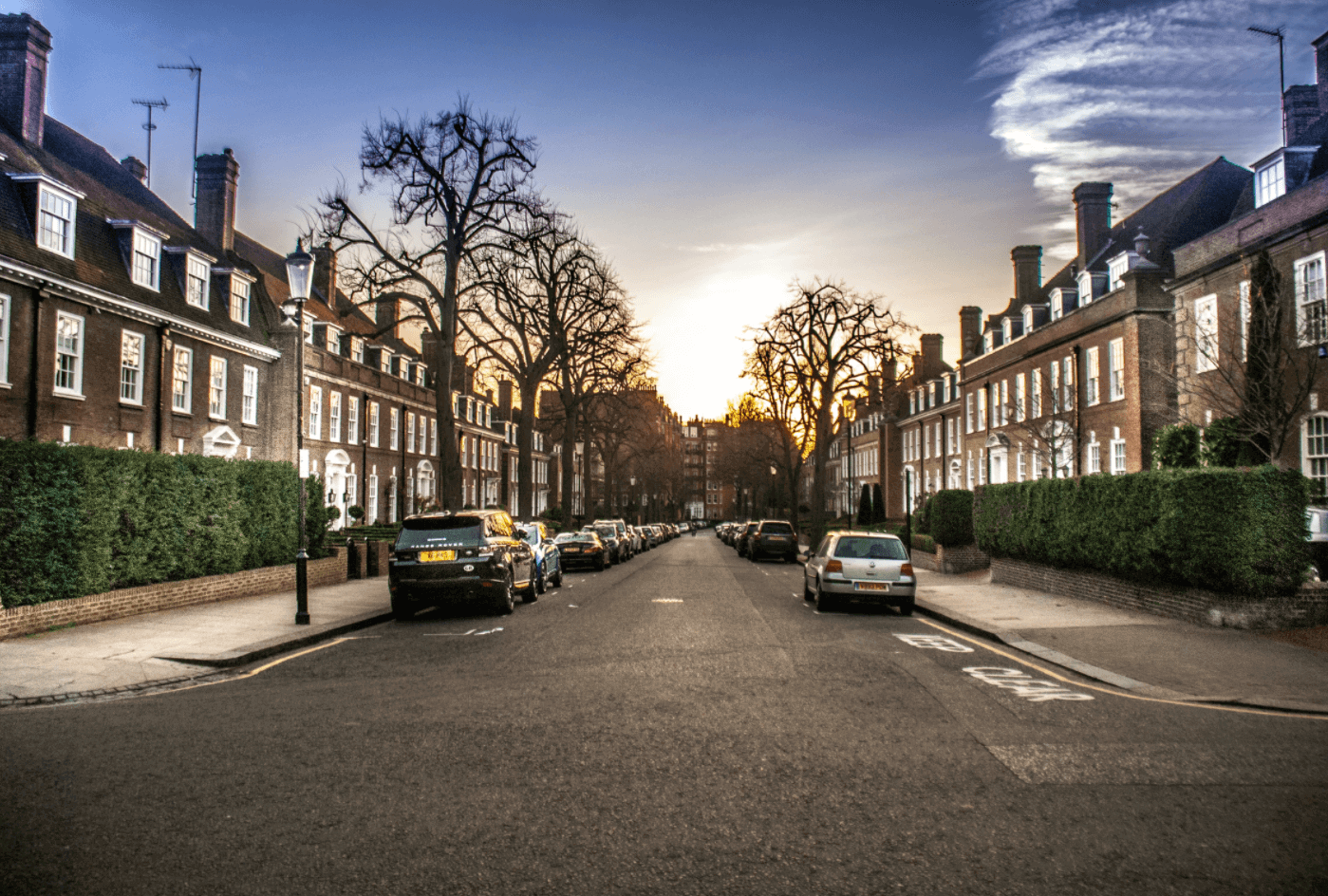
Living in a vibrant, leading global city like London comes with plenty of advantages, but the rent is not one of those.
London is among the most expensive cities in the world to rent.
Property prices vary depending on which area of London you are in, but the average monthly rent for a 2-bedroom property is around £2,400, and the average cost to purchase a 3-bedroom home is £1,253,904
If you reject a long commute and love to be in the middle of all the action, you might consider renting in Central London if you can afford it.
In Central London, the average 1-bedroom flat rents for £2,000 per month. And purchasing a home will cost around £1,449,000— 142% higher than London’s average!
If you are a young adult moving to London, you might be interested in living in East London. It is the hippest, up-and-coming area of the city.
In East London, the average price for a studio flat is £1,376 per month.
In North London (great for families and young professionals), the average property sells for £608,791, and the average price for a 2-bedroom rental is currently £2,220.
South London is a great area for young professionals and young families. Property prices are notably lower in this area.
In South London, the average price for a 1-bedroom rental is £1,432 per month. The average house sells for around £577,000.
West London is known to be the most expensive region of London.
In West London, the average home sells for £728,656, which is 21.8% higher than the London Average. A 2-bedroom rental in West London averages £2,796 per month.
Keep in mind that if you are renting, it is highly likely that you will be required to pay a deposit upon signing the lease. The deposit is usually 6-8 weeks of the rent.
This money will be held by the landlord for the duration of your lease.
If the property remains in the same condition as it was when you moved in, your deposit will be returned to you when you move out.
In addition to the deposit, it is also customary to pay one month’s rent before moving in.
If you found your new home through an agency, you will probably have to pay the agent an “administrative fee,” which is usually around £100.
Do not pay the agent’s fee until you have signed your lease.
A popular way to minimize your rent every month is to rent a spare room, or find flatmates to join you in your new flat.
Joining various Facebook groups is a great way to find people who are seeking a flatmate.
2) London Shipping Costs
Getting your belongings to London is another challenge you will face when moving.
Of course, the fewer belongings you move with, the easier it will be, but some things simply cannot be left behind.
If you have a large family or intend on bringing over many large items, you will need to consider the use of a shipping container.
The cost of a shipping container varies with the distance from which you are moving, but you can expect to pay anywhere from £1,400 to $5,000.
It is possible to pay less if you choose to share the shipping container with someone else instead of hiring a private one.
However, if you intend to ship a vehicle to London, we do recommend having the shipping container to yourself for security reasons.
3) London Moving & Storage Costs
Once you and your belongings arrive in London, you will need to find a way to get them to your new house.
If you are staying in temporary housing for the first couple months and do not have enough space for everything, using a storage service can be helpful.
Depending on the size of the unit, this can cost anywhere from £50-150 per month.
Click here for more information on London’s easiest, most cost-efficient moving and storage service.
4) Grocery & Food Costs in London
Food and groceries are no exception to London’s high cost of living.
A meal at an inexpensive restaurant averages about £15 per person, and a pint of beer is typically £5.
This can become quite costly for a large family; many experts recommend buying groceries and cooking meals at home to save money.
Take a look below at Numbeo’s average grocery costs:
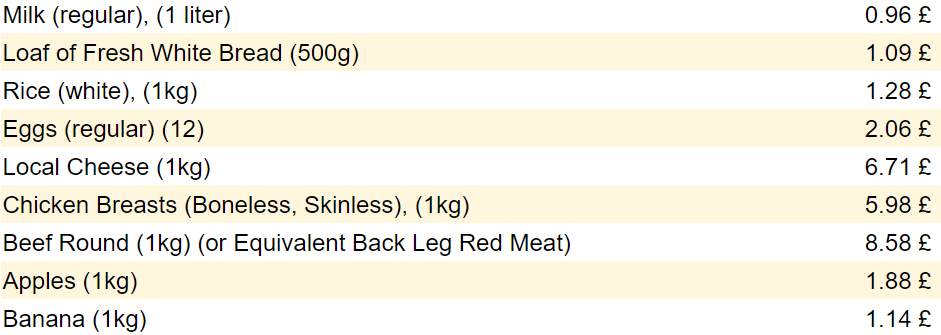
For use of public transportation, most commuters use an Oyster Card or their contactless bank card for payment.
5) Transportation Expenses
If you will be using public transportation often, it is highly recommended that you use one of these forms of payment.
London Transport is the best and most efficient in the world. However, if you purchase a single ticket every time, you can end up paying double.
Think of the Oyster Card as an electronic ticket (in the form of a card) that allows you to move around the Greater London Area.

According to London Toolkit, the Oyster Card is valid for:
- The London Underground network
- The London red local bus network
- The railway network in Greater London
- Docklands Light Railway (DLR), TfL Rail Services and Overground Railway
- Heathrow Express
- TFL railway services, including the TFL Heathrow Airport train
- 33% discount on many scheduled river services
- Train services between London and Gatwick Airport.
There are two types of Oyster Cards:
- Visitor Oyster Card
- Regular Oyster Card
As you can guess, the first one is used by London guests.
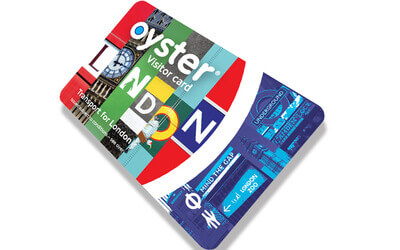
The second one is for people living in London.
The Oyster Card works with a pay-as-you-go system. The more you move around London, the more you pay.
You can always top off your Oyster Card with more money at one of the machines in the stations.
Both types of Oyster Cards have a daily cap, which means that once you reach a specific credit limit on your rides, the rest of the rides will be free.
Oyster Card & Contactless Payment Card Fares –
Compared to Single Cash Fares from 9th of May 2023
|
Zone |
Peak* |
Off-Peak |
Cash Fare at any time | |
|
Within One Zone |
Zone 1 |
£2.80 |
£2.70 |
£6.70 |
|
Zone 2 |
£3.40 |
£2.80 |
£6.70 |
|
|
Across Zones |
Zone 1 to 2 |
£3.40 |
£2.80 |
£6.70 |
|
Zone 1 to 3 |
£3.70 |
£3.00 |
£6.70 |
|
|
Zone 1 to 4 |
£4.40 |
£3.20 |
£6.70 |
|
|
Zone 1 to 5 |
£5.10 |
£3.50 |
£6.70 |
|
|
Zone 1 to 6 |
£5.60 |
£3.60 |
£6.70 |
|
|
Zone 2 to 6 |
£5.10 |
£3.50 |
£6.40 |
Note: Peak fares apply to all travel made Monday-Friday before 9:30am.
For buses and trams, the prices are a little different.
With “Hopper fares” you are allowed unlimited journeys for £1.50 the first hour after you have scanned your card.
This also applies during off-peak times.
This does not apply for any other methods of transport in London besides buses and trams.
Initially, you can always consider other means of transportation, such as a taxi or Uber.
If you will be relocating with a personal car—or if you are thinking to buy one—you will need to pay a Congestion Charge.
This is a daily charge of £11.50 for driving a vehicle in the charging zone Monday-Friday between 7:00 and 18:00.
The average ride in one of London’s famous black cabs will cost anywhere from £10-35, depending on distance and time of day.
General Tip #2: Find a House in London
London has some of the highest rental prices in the world, and finding a flat can be an exhausting process.
But once you find a flat that is in your price range and in the perfect neighbourhood, you will feel settled and content with your new life in London.
So, it is important to do your research before deciding.
Calculate your living expenses and salary and draw up an achievable budget.
Do not forget to factor in groceries, Wi-Fi, subscription and membership fees, and transportation prices.
In addition to budget, Location is one of the most important aspects of the flat search.
It is usually in your best interest to find a flat near your work.
Also consider the distance to the nearest grocery stores, gyms, restaurants, and other activities that you will frequently participate in.
If you are moving with your family, do your research on the London boroughs, prioritize your needs, and try to find a location that is convenient for everybody.
Facebook is a great source for finding available flats, especially if you are trying to avoid the fees that accompany going through a real estate agent.
Zoopla, Movebubble, and OpenRent are also excellent tools for finding the right flat, and usually without a real estate service fee.
If you are single and want to minimize the percentage of your salary that goes toward your monthly rent, a shared house or flatshare might be the right choice for you.
Remember that during your flat search, you can always rent a room in an Airbnb or flatshare, so you do not feel as rushed to find your next home.
General Tip #3: Apply for a National Insurance Number & Prepare All the Legal Documents
The most important thing to do before moving to any new city is to get your legal documents in order.
You will not be able to legally relocate until this is done.
This chapter will provide you with the knowledge you need to obtain your legal residency.
Apply for a Visa:
This is the first document you’ll need when moving to London.
It does not matter which country you are coming from; you must be approved for a visa to live in London.
However, the requirements differ for those who are from:
- European citizens
- American citizens
- Australian citizens
- Citizens of non-commonwealth countries
And visas differ for those who:
- Want to study in the UK
- Want to work in the UK
- Want to move to the UK with their family
- Want to live permanently in the UK
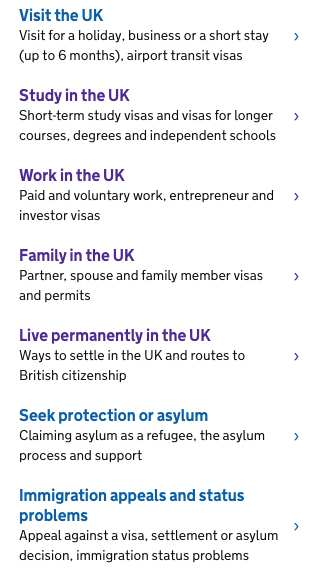
According to the official UK government website, these are the essentials for applying for a General Student Visa (Tier 4):
- You have been offered a course in England
- You can communicate in English
- Your financial status allows you to pay for university and support yourself
- You live in a country that is not in the European Economic Area (EEA) or Switzerland
- You meet additional eligibility requirements
According to the official UK government website, these are the essentials for applying for a General Work Visa (Tier 2):
- You have been offered a job in England.
- You can show proof of getting paid for your work
- Prove your knowledge of English,
- Have some money on your account so that you can support yourself for the first weeks of your arrival,
- Show that you have a travel history over the last five years,
- Take a tuberculosis test results if you are from a listed country
- Provide a criminal record certificate from the country you’ve lived in for the last 12 months (under certain circumstances)
The Youth Mobility Scheme Visa is a visa allowing eligible people to live and work in the UK for up to 2 years.
To apply for this visa, you must be from one of the following countries:
- Australia
- Canada
- Japan
- Monaco
- New Zealand
- Hong Kong
- Republic of Korea
- Taiwan
And meet these requirements:
- want to live and work in the UK for up to 2 years
- are aged 18 to 30
- have £1,890 in savings
Keep in mind that getting a visa for the first time is not easy, and it may take some time.
It is highly recommended that you apply for a visa months before you move to London.
Additional requirements may apply to those who have family members in England and want to apply for permanent residence.
If you only plan to be in London for a few months, you will need a Travel Visa (or Travel Card).
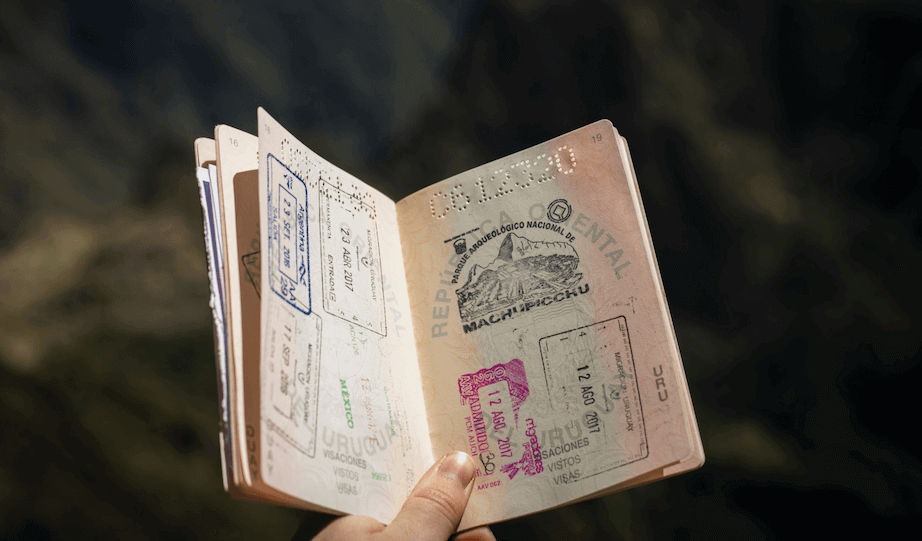
The Travel Visa is—in most occasions—valid up to six months.
Open a Bank Account:
You will also need a local bank account in order to receive your salary, and a bank card to pay for various products and services.
Opening a UK bank account for non-British citizens is not always easy.
However, there are a few less restrictive options.
You can open a current account for your everyday transactions—through a mobile bank—like Monese:
Understand the National Health Service (NHS):
What is the National Health System?
NHS is Great Britain’s national health service, which provides:
“Healthcare for all British Citizens based on their need for healthcare rather than their ability to pay for it.”
The NHS is funded by taxes.
For example, European Citizens—within the European Economic Area (EEA)—get:
“Free or reduced cost medical treatment, as long as they have EHIC (European Health Insurance Card).”
Regardless of your nationality, you have to be aware of the NHS and its system, and apply for an EHIC before your removal.
The NHS offers the most affordable and safest medical care compared to other medical services around the world. For example, medical services in the US are infamous for exorbitant costs.
According to a study conducted by RAND, insulin prices in the US are 4 to 8 times higher than the UK. A vial of insulin costs around $7.6 in the UK, while the same vial costs around $92 in the US.
Check your Driving Licence:
If you are driving in Great Britain on a non-GB licence, you have to know what rules apply.
Take a look at this page by the United Kingdom government and find out in which category you fall into:
UK provisional driving licence for foreigners
Check your Council Tax Band:
Just like in any other countries, Great Britain has a national tax system that most citizens must pay into.
You must know what your tax obligations are before moving to London.
It is important to be patient, organized, and thorough when gathering the appropriate legal documents.
Fortunately, the British government is very friendly and will help you with every step of the process.
If English is not your first language, and you need a little assistance, translation services are easy to find with just a quick google search.
General Tip #4: Find a Reliable Moving & Storage Company
Once you have found a house, you have to find a reliable moving company that will help you move your stuff without having to pay a fortune.
Your best bet is STORED when it comes to finding a reliable and affordable storage company. STORED is the highest rated storage and removal company of London.
In a big city like London, there are many home moving companies.
This makes the decision even more complicated
How do you know which company to hire?
Finding an affordable moving company is not easy.
But we know that STORED is the best you can get. Our all-inclusive storage company takes off all the pressure of moving and packing, we handle all the stress-full tax related to moving.
We make sure you get a true hassle-free experience, the transition to your new home goes smoothly. The best part? We offer a guaranteed low price. Now you can’t say no to STORED.
Below are some things that you have to pay attention to when you want to find a dependable moving service.
1) Pricing
The first thing you are probably going to ask about is pricing, and the system they use to charge you.
There are several ways when it comes to charging, but one of the most common ones is by the hour.
This is the method we are using at STORED.

Some companies will try to manipulate the system, however.
A moving company may offer a lower price per hour and take more hours than necessary to complete the project.
Ask up front for a clear answer, “How many hours can I expect this to take?”
2) Insurance
This one is essential.
Most moving services give you a quote that doesn’t include standard liability insurance. STORED is a step ahead of its contemporaries in this regard.
We offer a standard liability insurance coverage for all our customers.
That too free of cost!
And, when you ask for it, they tell you that you have to pay.
First, you should check the company’s website:
If you can’t find such a piece of information on the website, you should ask when reaching out to the company and ask for a quote.
3) Work Schedule
When you are moving to London from abroad, you want things to happen quickly and easily as possible.
So, you will want to find a moving company that will work around your schedule, and not the other way around.
For more information on a dependable, cost-efficient moving service, have a look at our website.
We would love to help you and your family relocate to the UK in an easy and stress free way. We offer storage in London as well, to keep your belongings safe.
General Tip #5: Public Transport in London
As mentioned earlier, London is divided into 9 zones, and you pay more as you travel farther away from the city centre. In London you’ll find multiple modes of public transportation.
Although it can sometimes get a bad rep, London actually has an excellent public transport system, with many modes to choose from.
The most well-known method of transportation in London is the London Underground, also called the Tube.
This is an underground network of tunnels similar to New York City’s subway system.
Charing Cross is a junction in Central London where 6 routes meet.
For many people, it is important that their homes be as close to Charing Cross as possible, as it is easier to access the rest of the city through this junction.
The Overground is a system of tram-like vehicles operating above ground. If the Tube does not have a station in a certain area, it is likely that the Overground does.
The bus system in London is also another efficient transportation option.
There are around 50 bus stations and more than 19,000 bus stops throughout the whole city.
The Tramlink, while similar to the underground, is an entirely different service operating on different routes and schedules.
Docklands Light Railway is a light metro system in the Greater London area. It has 7 different lines, and 45 stations. On the average day around 340,000 commuters use the DLR.
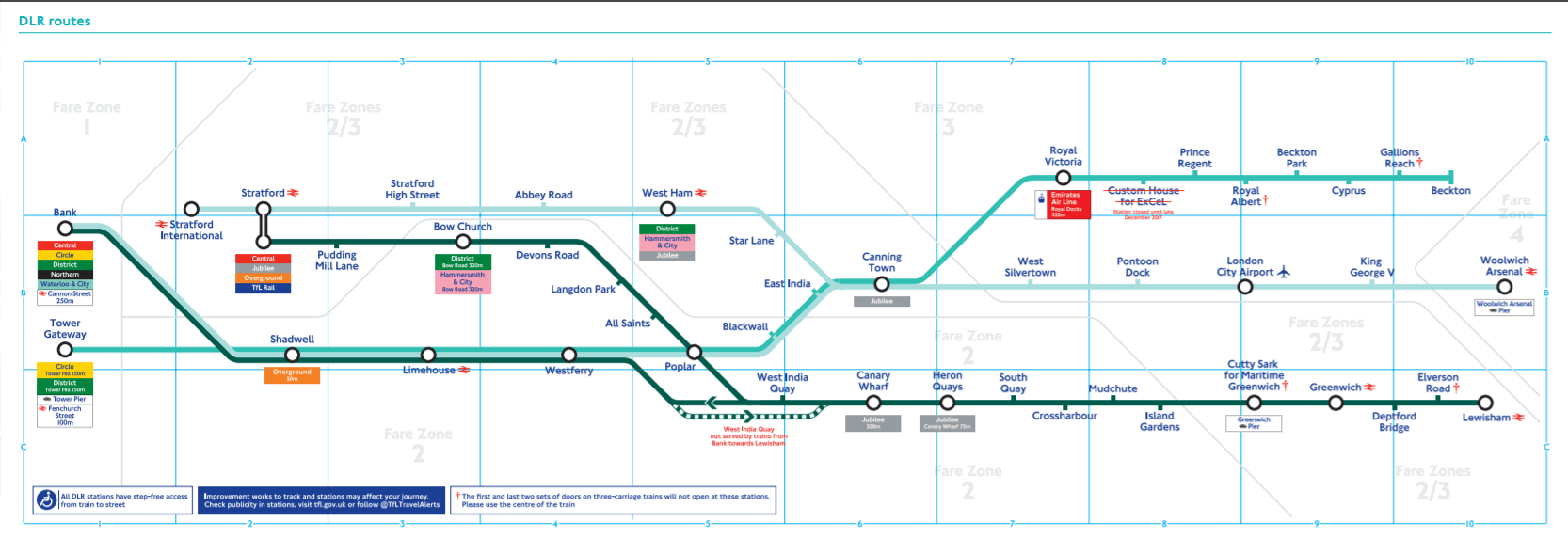
Consisting of 33 piers, London River Services, is another method of transportation available to commuters with an Oyster Card.
Services are increased during peak hours and most services run 7 days a week.
As stated, there are many methods of transportation available to locals and tourists across London. So you will always have a way to get where you need to be.
Becoming familiar with the routes and services will likely take a while, so we recommend downloading helpful apps, such as Citymapper, Busmapper, and Google Maps.
General Tip #6: Make New Friends & Start Living!
Finding like-minded expats and people from the same countries and cities as you is exciting and beneficial to acclimating to London life.
But do step outside your comfort zone!
Immerse yourself in the new culture.
Try new foods, meet locals, and befriend colleagues.

It is often said that Brits can be more reserved than other nationalities, but if you have an open mind and a positive attitude, you can quickly make lifelong friends.
But also remember to make time for yourself.
Take a time-out from the hustle of the city and explore one of the many parks London has to offer.
After establishing yourself, continue to learn about the city and explore its various neighbourhoods to feel like a true Londoner.
Checklist for moving to London in 2023
Moving to London isn’t as scary as some people make it out to be. As long as you have a plan and vision.
Here are checklists to make your move to London easier. We have separate checklists for Young Adults, Families, and Employees. Use a checklist according to your situation.
Checklist for Young Adults
- Analyse your situation, research, set a budget.
- If you’re a university student, calculate the cost of living and education.
- Apply for Visa, your university will help you with it.
- Keep some backup funds.
- Find suitable accommodations close to your university.
- Ideally, young students find shared flats more advantageous.
- Try your university groups, you’ll find groups looking for flatmates.
- Get a bank account (usually a current account) and a SIM.
- Get insurance and check your NHS coverage.
- Look for a part-time job in a local Café or any other business.
- You can also try freelancing or remote jobs.
- We recommend local jobs because it allows you to interact with the people.
- Find a suitable moving service like STORED if you have plenty of belongings.
- Enjoy your life in London.
Checklist for Employees and Job Seekers
- Analyse your situation, set a budget.
- If you have a job, ask your employer for a settling-in service.
- If you don’t have a job use an online job-seeker to find one.
- Apply for a Visa.
- Scout suitable accommodations in London according to your budget.
- Find accommodations closer to your job location.
- Get a bank account and a sim.
- Get insurance and check your NHS coverage (Your employer can help).
- If you’re single, you can also share flats with other people.
- Use STORED to move your belongings to your new accommodation.
- Use local events to make new acquaintances.
- If you have a language barrier, attend an institute.
- Go on walks to get acquainted with the city.
- Join your peers to get a better idea of what you need.
Checklist for Families Moving To London
- Allocate a budget according to your family.
- If you have a job, ask your company or employer for assistance.
- Apply for a visa according to your family.
- Contact the immigration department of the UK.
- If you don’t have a job, look for potential jobs.
- Ideally, both guardians of the family should seek employment.
- Find suitable accommodations, ideally one that is close to a school.
- Get STORED to move in smoothly to your new home.
- Get a bank account and a SIM after you make the move.
- Enroll the children in a school.
- Get insurance and check your NHS coverage.
- Have a house-warming party to make new connections.
Important Notes
Whether you’re moving as a young adult or with your family, you need to allocate a backup budget. If you’re moving as a family, then you need to research a lot more, like potential schools, healthcare etc.
If you’re moving to London in 2023, then get in touch with expats in London through social media channels. They could give you valuable information about the moving process. If you know someone in London personally, that’s even better.
Although London is one of the biggest cities in the UK, there are other cities and prospects in the UK as well. Keep your options open, and capitalize on every opportunity you get.
Finally, London is a wonderful city, with amazing people, and opportunities. If you’re going to make the move, then don’t let anyone stop you. The first few weeks may be a bit tedious but you’ll get through it. Do your due research about the things you should know and be confident.
Final Thoughts
Moving to London is a good idea for several reasons.
And it could be the best life decision you have made so far.
To ensure your success in a new city, do your homework, budget accordingly, and start the visa process as soon as you can.
Have you ever thought of moving to London? If yes, would you be moving alone or with your family? And which of these tips do you find the most helpful?
Please let us know in the comments below!



